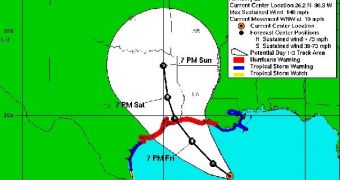The National Weather Service has decided to employ a more drastic approach to warning people about severe storms, hurricanes, or tornadoes that may hit the United States this year, by flashing ads on all networks and air frequencies and by using harsher words and overall language when describing the situation. Representatives say that this is the only way to capture the public attention, which apparently is focused on other things that are more important than the people's own lives.
Just recently, a study from the NWS has revealed why Americans failed to heed the warning that the federal service issued on February 5-6, 2008, when 82 tornadoes struck the country. Dozens of lives were lost at the time, and the property damage was as high as $400 million throughout nine states.
Despite the fact that the service made the caution public a good deal of time before the actual events, few people took heed, and authorities have found themselves puzzled at this lack of reaction and disinterest that individuals manifest for their own lives and the lives of their loved ones.
“In any particular storm situation you always want to have as clear and concise language as you can to get the message across, and also so folks realize the gravity of the situation,” Dennis Feltgen, who is a spokesman for the NWS, says in a statement. Before the hurricane season of 2009 officially starts, on June 1st, the agency seeks to change existing legislation in a way that would allow it to use harsher language on TV than it is currently allowed to, in hopes of increasing the numbers of those who actually pay attention to the warning and flee for safety.
“Wording such as 'extremely dangerous and life threatening situation' should have been employed more often in tornado warnings and follow-up severe weather statements. Many call-to-action statements that did not convey the urgency of the event were used. Statements such as 'this is an extremely dangerous and life threatening situation' would increase the level of significance of these products,” the recent report, which the NWS has released this month, reads.
“There's obviously the sense that some people underestimated the strength of it. Whether that was because they didn't read the product or they didn't have access to it (...) unfortunately you're going to have to ask them and some of those people are dead,” NWS Houston/Galveston office meteorologist Kent Prochazka pinpoints in speaking about how people reacted when Hurricane Ike landed in Galveston, Texas, destroying about 75 percent of the city.

 14 DAY TRIAL //
14 DAY TRIAL //